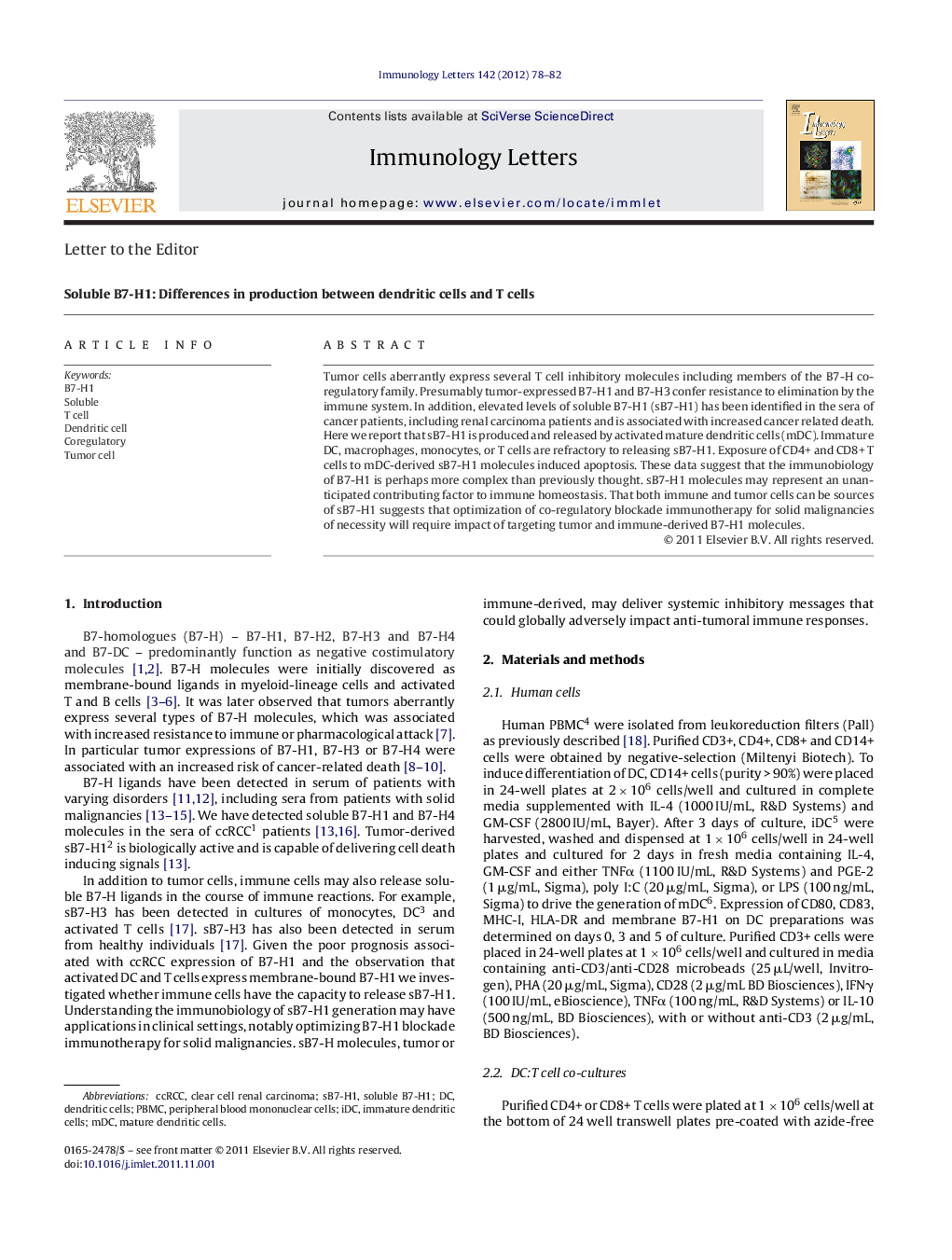| Article ID | Journal | Published Year | Pages | File Type |
|---|---|---|---|---|
| 3355672 | Immunology Letters | 2012 | 5 Pages |
Tumor cells aberrantly express several T cell inhibitory molecules including members of the B7-H co-regulatory family. Presumably tumor-expressed B7-H1 and B7-H3 confer resistance to elimination by the immune system. In addition, elevated levels of soluble B7-H1 (sB7-H1) has been identified in the sera of cancer patients, including renal carcinoma patients and is associated with increased cancer related death. Here we report that sB7-H1 is produced and released by activated mature dendritic cells (mDC). Immature DC, macrophages, monocytes, or T cells are refractory to releasing sB7-H1. Exposure of CD4+ and CD8+ T cells to mDC-derived sB7-H1 molecules induced apoptosis. These data suggest that the immunobiology of B7-H1 is perhaps more complex than previously thought. sB7-H1 molecules may represent an unanticipated contributing factor to immune homeostasis. That both immune and tumor cells can be sources of sB7-H1 suggests that optimization of co-regulatory blockade immunotherapy for solid malignancies of necessity will require impact of targeting tumor and immune-derived B7-H1 molecules.
► Soluble B7-H1 (sB7-H1) is released by activated mature dendritic cells (mean sB7-H1 270 pg/day × mL × 106 cells). ► Activated T cells release trace amounts of sB7-H1 (mean sB7-H1 <14 pg/day × mL × 106 cells) under optimal activation conditions. ► Dendritic cell-derived sB7-H1 induces apoptosis in T cells. ► Immune cell-derived sB7-H1 may mediate yet to described immune regulatory effects. ► B7-H1 blockade therapy may be impacted by immune-derived sB7-H1.
